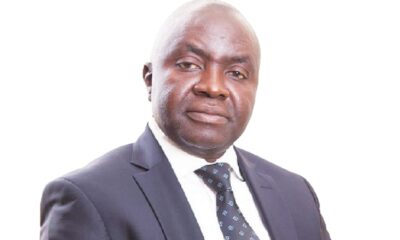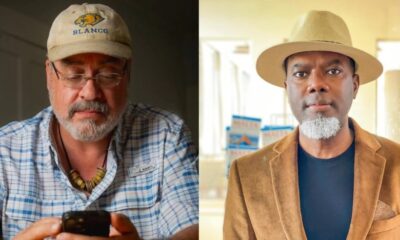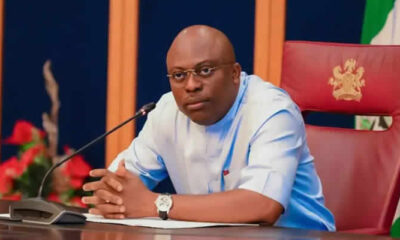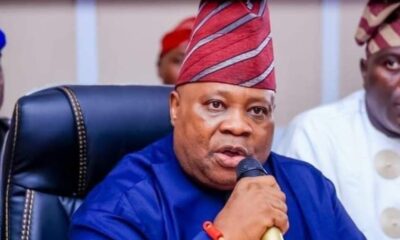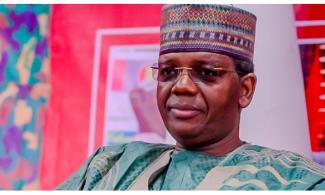Opinion
2027 elections as a litmus test for reforms
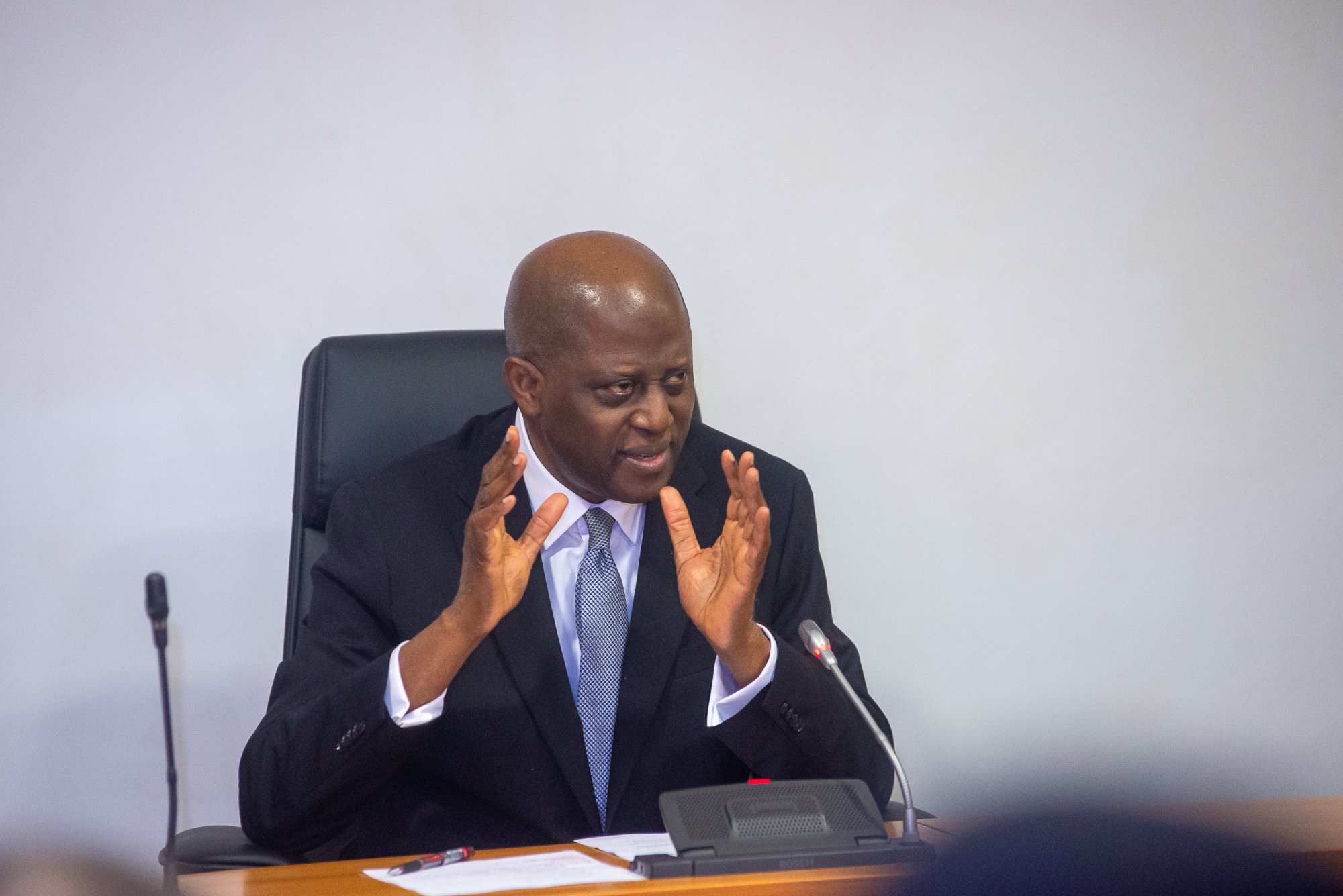
No, I am not talking politics. I am aware that sixteen months to the next general election, the political atmosphere is already fully charged as if we are going to the polls tomorrow. I am tempted to say I have never seen anything like this in my life, but that would be an unacceptable exaggeration. In reality, Nigerians were created for politics. We live, eat, drink and smoke politics 24/7. As I always say, nothing excites us more than playing politics and doing electoral permutations. Some pundits have already sat down in their houses and allocated states, geo-political zones, and regions to one presidential candidate or the other. We get our kicks from politics and politicking. That is who we are.
But I am here to discuss the economy. After a dizzying turbulence that looked like we were headed for a crash in 2023, our flight seems to have stabilised — with economic indices appearing to show that we can now unfasten our seatbelts and stretch our legs. The word “stability”, however, means different things to different people. When Dr Ngozi Okonjo-Iweala, director general of the World Trade Organization (WTO) and Nigeria’s former minister of finance, said recently that the economy had stabilised, she got an instant backlash from her fan base which never expected her to say anything positive about the Bola Tinubu administration. But she was talking economics, not politics.
When economists and market experts talk about economic stability, they are not saying danger is over or everybody is fine. It is like when you rush an accident victim to the hospital. The first thing the doctors want to do is keep the patient breathing, stop the bleeding and make sure the vitals — such as oxygen saturation and blood pressure — are within control. When the patient is no longer deteriorating and the vitals are within the reference range, doctors will tell you the patient is “stable”. It does not mean the wounds are healed or the fractures are gone. It does not mean the patient can start jumping. It means the patient is… stable. Keep it going and there could be recovery.
“Stability” to the person on the streets means something else. In practical terms, it should mean the cost of living is going down and the standard of living is going up. It should mean they can now afford food without tears. It should mean they can now buy their drugs and cater for their dependants without much agony. It should mean they can now go for a day without having to beg a relative or friend for money to meet a routine need. In other words, Nigerians on the streets are saying you cannot claim that the GDP is growing and inflation is coming down while they are struggling to survive and thrive. It means something is not connecting between the GDP data and the facts of life.
The topsy-turvy story of the Nigerian economy is well documented. We have been going through boom-bust cycles since the oil windfall era of the 1970s. Ironically, many view this as our golden era, when the government introduced fuel and meal subsidies, multiplied salaries and benefits and paid in arrears, set up airlines and shipping lines, and embarked on white elephant projects that gulped stupendous resources. We became overly dependent on imports. We set ourselves up for an appetite we could not sustain. When oil prices nose-dived, we went into severe pains, accumulating massive debts, failing to fund public utilities, and becoming drenched in neglect and poverty.
But while we used to come out of despondency whenever there was a resurgence in oil prices, we woke up one day to realise that, like Samson in the Bible, our power was gone. Our head had been shaved. High oil prices were no longer enough to get us back to life. The quantity of the oil had gone down dramatically while our population had gone up astronomically. That is, “water don pass garri”. Our population was growing faster than our economic productivity. Yet, we kept deceiving ourselves that we were rich. We continued to subsidise petrol with unearned money, even pledging future oil production. We continued to subsidise the naira when we were not producing or exporting much.
Perhaps, tough measures should have been applied by President Goodluck Jonathan in 2014 when things started going down. Reforms would probably have been less painful at that stage. But there was an election the following year and Jonathan was not going to set himself up for defeat. If he had been re-elected, he might have been more courageous in correcting course. President Muhammadu Buhari came in, pitied the patient and opted for minimally invasive procedure. Neither the symptoms nor the ailments disappeared. Tinubu came and took the brutal decision but this dealt deadly blows on Nigerians, with the poor bearing most of the burden and the middle class running out of gas.
Speaking of which I was at the London Business School (LBS) on Friday evening where Mr Olayemi Cardoso, governor of the Central Bank of Nigeria (CBN), was hosted to a conversation on the monetary reforms. It was anchored by Hélène Rey, the Lord Bagri professor of economics at the LBS and a former professor of economics and international affairs at the Princeton University. A succinct introduction by Dr Nkiru Balonwu, the governor’s adviser on communications and stakeholder management, was followed by an overview of the reforms by Mr Mayokun Ajibade, former MD for Standard Chartered Bank in West and Southern Africa and now an adviser to the CBN governor.
Cardoso took the floor and answered questions from Rey and the diverse audience on the state of the Nigerian economy. He spoke largely on the theme of stability, recounting the issues that had often bedevilled the macro-economic environment — in lay language: inflation, interest, and foreign exchange rates, also referred to as the key rates. Whereas Nigerians often experience the economy in terms of the micro, which is the frontend — how it affects the person on the street — the backend, the macro, significantly shapes the micro. Of what use is the money in your pocket if inflation has turned it into a paperweight? What is economic growth if it does not add weight to your well-being?
The CBN governor, who was appointed two years ago, said the bank had to return to “orthodoxy” — doing monetary policy the traditional or “normal” way — in order to create transparency and credibility, and restore confidence to the financial markets. He spoke about how multiple exchange rates had damaged the economy, created opacity and uncertainty in the markets, discouraged forex inflows, fed and bred arbitrage, and culminated in unfulfilled obligations that backlogged up to $7 billion. The massive devaluation, he admitted, was painful and hurtful but that was the only way to reset the system and rebuild confidence. It was like amputating an accident victim to save his life.
“The devaluation looked draconian at the beginning but we are now seeing the results,” Cardoso said. “The naira has become stable. The gap between official and parallel markets that used to be up to 60 percent is now down to 1 to 4 percent. Scepticism has reduced. With the transparent system that is now in place, people no longer need to frontload their forex demands, which were usually borne out of uncertainty. The system now allows you to see who is buying and who is selling. The results are showing: more inflows, growing reserves, portfolio investment on the rise, trade surplus… all these developments have contributed to the easing of inflation, although I admit it is still high.”
Cardoso spoke about how inflation is responding well to the monetary policies and how, for the first time in a long time, the GDP is growing faster than the population — a development that, if sustained, should translate the theoretical data into better life for ordinary Nigerians. He spoke on the recapitalisation of banks. This, he hopes, would lead to the redefinition of niche among the banks. No bank will lose its licence, he said. Those who do not have the capital base to operate at the highest level will have their licences downgraded, and if this goes well they will be expected to strengthen their activities at the lower levels to accommodate small and medium scale businesses.
As I sat in the audience and watched Cardoso speak, it dawned on me on how difficult the job is. He was honest enough to admit CBN’s limitations — after all, it only manages monetary policies. The political authorities manage the fiscal and spending side. If there is fiscal rascality — especially in a federation of independent states and local government areas which cannot be dictated to by the monetary authorities — the CBN will be left to manage the resultant mess. Handshakes between monetary and fiscal authorities are vital to the overall health of the economy, but while the central bank does a technical job, the fiscal authorities, being political, have their constituents to please.
As we approach the 2027 general election, political risk can derail the reforms. Those familiar with Nigeria know that the economy is always flooded with cash in election years. The CBN has its work well cut out. When politicians pump free cash — money not backed by productivity — into the economy, it is an open invitation to inflation. More cash ends up purchasing fewer goods and chasing forex. You know what usually happens next. It will then be left to the CBN to solve the problem. Above all, what if there is a change of government in 2027 and the new president decides to restore petrol and forex subsidies in order to “protect the poor”? The reforms will simply end up in the mud.
AND FOUR OTHER THINGS…
CHAIRING INEC
President Bola Tinubu has nominated Prof Joash Ojo Amupitan as the next chairman of the Independent National Electoral Commission (INEC), subject to senate confirmation. According to reports, Amupitan’s nomination was unanimously approved by the Council of State, of which all governors and former heads of state are members. There is a debate as to why the president, as an interested party, should be appointing the electoral chief. It is not new, but it is worth examining as we continue this democratic journey. But for as long as this constitutional provision is retained, we must keep whoever is appointed under scrutiny and engage with them constructively. Imperative.
FAKE FORETASTE
I remember telling my colleagues at TheCable a few months ago that the 2027 general election will witness the biggest deluge of misinformation and disinformation in our history. I advised them to be prepared. On Friday, Nigerians got a taste of what is to come with the wide circulation of the fake news that Prof Amupitan, the INEC chair nominee, was one of the lawyers that represented Tinubu at the election petition tribunal in 2023. Those who cooked up the story knew what they were doing — and people easily fall for misinformation and disinformation when it aligns with their prejudices and biases. Even AI will be manipulated to confirm fake news. We are in serious trouble. Terrifying!
RIP, CHRIS KOLADE
When I interviewed Dr Christopher Kolade in 1998, I instantly became one of his foremost admirers. I asked him if it was true he had committed his future earnings to his foundation to support girls’ education and leadership development, he replied: “I am not planning to build another house or marry another wife, so what do I need all the money for?” That ignited something in me. The retired broadcaster, mentor and business leader was a role model for me, with his sound Christian values and principles, nation-building worldview and philanthropy. The other person I similarly admired was Mr Gamaliel Onosode, who died in 2015 aged 82. Kolade has died 10 years later, aged 92. Adieu!
NO COMMENT
Mr Uche Nnaji resigned as minister of innovation, science and technology after he was accused of being too innovative with his certificates by Premium Times, the investigative newspaper. Nnaji allegedly forged his degree and NYSC certificates. Although he continues to deny the allegation despite resigning, the fact remains that there is a certificate forgery epidemic in the country and it will continue to thrive until the culprits are decisively brought to book. A former speaker once told me how the house of reps wanted to constitute committees and asked everyone to show their certificates. The assemblage of forged certificates, he said, was beyond imagination. Nigeria!
Written by Simon Kolawole
-

 Business23 hours ago
Business23 hours agoSoft drinks tax hike harmful to economy – CPPE
-

 News22 hours ago
News22 hours ago“He’ll embarrass Nigeria on world stage” — U.S. activist asks Senate to reject Reno Omokri’s ambassadorial nomination
-

 News23 hours ago
News23 hours agoRivers Assembly attacks Fubara over infrastructure collapse, N600bn savings
-

 Politics23 hours ago
Politics23 hours agoOsun Governor, Adeleke Resigns from PDP
-

 News23 hours ago
News23 hours agoBadaru resigns as defence minister, cites health reasons
-

 News23 hours ago
News23 hours agoEx-Defence Chief Christopher Musa Set To Replace Badaru Abubakar As Nigeria’s Defence Minister
-

 Business23 hours ago
Business23 hours agoNigeria should not be importing fuel, we have capacity to meet local demand — Dangote
-

 News23 hours ago
News23 hours agoPressure Mounts On Tinubu To Sack Matawalle As U.S. Insists On Defence Ministers’ Removal Before Security Collaboration



